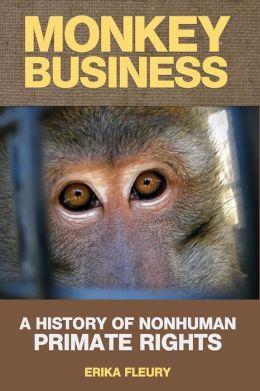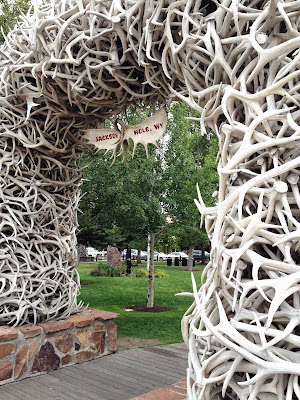This week I was lucky enough to be able to attend "Personhood Beyond the Human", a conference at Yale University sponsored by The Institute for Ethics and Emerging Technologies, endorsed by the Nonhuman Rights Project (NhRP) and funded by Terasem Movement Foundation and of course, Arcus Foundation (who seem to be behind everything that I enjoy).
Although this conference was not specifically about primates, primates were often the topic of discussion (along with elephants and orcas). Over three days, the various speakers gave presentations on all aspects of legal personhood, how to recognize a being as a person, and why or if humans should recognize other beings as persons.
Keeping in mind that just this week, the NhRP filed the first cases on behalf of the legal personhood of a chimpanzee, the timing of this conference was pretty incredible.
Even more incredible were some of the speakers...
Peter Singer - the very man who penned my all-time favorites Animal Liberation and The Great Ape Project - opened the conference on Friday night. About five years ago, I took a train to Manhattan to hear him speak, but my second time seeing him live was no less exciting. Perhaps "exciting" is not the right word for a bunch of people sitting in an auditorium on a rainy Friday night, but regardless, I always find myself rather exhilarated to be in the presence of (what I consider to be) greatness and true inspiration.
Singer discussed speciesism, or the tendency to have a bias against other species simply in order to give preferential treatment to the group to which one personally belongs. Giving equal consideration to similar interests - across species - requires humans to empathize and consider what it's like to be a being of another species, especially when it comes to their possible desires to experience pleasure and avoid pain.
There is a strong case to consider rationality (or the awareness of one's own existence over time) to be the basis of legal personhood. It would then follow that some animals (such as chimpanzees) would be considered legal persons, despite the fact that many humans (such as young children and the mentally disabled) who are not considered rational have already been enjoying these rights.
It was clear that Singer could have spoken for hours longer, even just to answer all the questions from the audience. It was well worth the down-pour that drenched us all as we left the auditorium that night!
On Saturday, I was looking forward to hearing from Steven Wise, director of the NhRP and the lawyer who spent the last 27 years of his life building up for this past week's legal filing. I was lucky enough to speak with him in person earlier that day. He is a kind, pleasant man with a wonderful sense of a humor and enviable perserverence. I have no doubt that chimpanzees deserve more legal rights, and I have even less doubt that Steven Wise can prove this in a court of law.
Wise brought with him what appeared to be a ream of paper, but it was actually the testimonials of the primatologists and experts related to his trials. From Tetsuro Matsuzawa to Christophe Boesch, I was familiar with many of the names because they, like Wise and Singer, are in Monkey Business. He explained that the NhRP is asking the judges of their cases to focus on the importance of autonomy of the four captive chimps living within New York state. Relying on petitions for common law writ of habeas corpus, they are referencing the slave trials of America's past, in which the captors must present the captive being and legally and sufficiently explain why keeping him or her jailed is justified.
Common law equality means that you can't treat the same things differently for an arbitrary reason, Mr. Wise stated. Discrimination based on being a chimpanzee is arbitrary and such treatment is akin to racism, or sexism, or any other -ism in which one population strips equality from another population based on one characteristic.
The recent climate of the United States animal rights field, combined with key events like the National Institutes of Health's recent halt to funding of chimpanzee research, made it the perfect time for NhRP to file their first cases this week, and this weekend's conference was more than opportune.
Personhood Beyond the Human was an encapsulation of the times. We are living on the brink of change for our closest relatives, and was quite fascinating to hear first-hand from the mouths of those who lead the way.





























